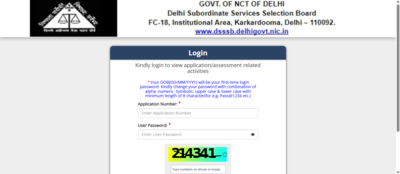Why are Ivy League universities bringing back SAT and ACT requirements after years of test-optional policies?

Princeton University has recently announced that it will reinstate SAT or ACT testing requirements for undergraduate applicants beginning in the fall 2027 admission cycle. The decision follows a seven-year period of test-optional admissions introduced during the Covid-19 pandemic due to limited access to testing centres.With this change, Columbia University remains the only Ivy League institution to retain a permanently test-optional policy. The move by Princeton aligns it with peer institutions such as Harvard, Brown, Dartmouth, and the University of Pennsylvania, all of which have either reinstated or plan to reinstate standardised testing in upcoming admissions cycles.Academic data prompted review of testing policyAccording to Princeton, the decision followed an institutional review of five years of data collected during the test-optional period. The analysis showed that students who submitted test scores demonstrated stronger academic performance once enrolled at the university.This finding mirrors the rationale at other Ivy League institutions that have recently reinstated test requirements. Harvard, Brown, Dartmouth, and the University of Pennsylvania have each announced plans to require standardised tests again beginning in the 2025 admission cycle.A consistent benchmark across diverse schoolsStandardised tests such as the SAT and ACT offer universities a common metric to compare applicants from a wide range of secondary school systems. As grading policies and academic rigour can vary significantly across schools and regions, universities use test scores to establish a baseline of academic preparedness.According to the College Board, the SAT is designed to measure college readiness in a consistent manner, regardless of background or curriculum. This helps admissions officers assess applicants fairly when high school records may be difficult to compare directly.Predictive value of test scores for university successNumerous studies, including those conducted by the Educational Testing Service (ETS) and the American Educational Research Association (AERA), support the use of standardised test scores as a valid predictor of university performance. Research indicates that SAT or ACT scores, in combination with high school grade point averages, provide a more accurate forecast of academic success than GPA alone.This predictive element has become especially important as admissions officers seek data-driven methods to select students prepared for the academic demands of elite institutions.Responding to pandemic-era inconsistenciesThe Covid-19 pandemic led many universities to suspend testing requirements due to the closure of test centres and other access challenges. However, these temporary policies introduced new inconsistencies in evaluating applicants, especially as students’ academic experiences varied widely during that period.A report by the Brookings Institution noted that such disparities could hinder fair assessment. By reinstating test requirements, Ivy League universities aim to restore a more uniform admissions framework.Addressing volume and complexity in admissionsElite universities face increasing application volumes and a growing number of highly qualified candidates. Standardised tests serve as one way to distinguish among applicants with similarly strong academic and extracurricular profiles.Harvard and other institutions have noted that test scores offer an additional data point to support decisions when other elements of the application are comparable across many students.Maintaining a holistic review processDespite the return of test score requirements, institutions like Princeton have clarified that there are no minimum score thresholds for admission. Test results will be reviewed as part of a broader, holistic evaluation process that includes essays, recommendations, school context, and extracurricular achievements.Princeton has also stated that active military personnel will be exempt from the testing requirement, acknowledging continued logistical challenges some applicants may face.Equity measures and flexibility in testingWhile standardised tests have faced criticism for reflecting socioeconomic disparities, universities have introduced measures to mitigate these concerns. The College Board Board and ACT, Inc. offer fee waivers and free test preparation resources to support applicants from under-resourced backgrounds.Additionally, institutions like Yale have adopted test-flexible policies, allowing applicants to submit SAT, ACT, Advanced Placement (AP), or International Baccalaureate (IB) scores.Supporting international and transfer evaluationsStandardised tests remain especially valuable in evaluating international and transfer applicants, whose educational qualifications may not align directly with US high school standards. Organisations such as the Council of International Schools have supported the continued use of these assessments for ensuring comparability in global admissions.Current testing policies across Ivy League institues
Summary of current Ivy League admissions policies
As of now, Columbia remains the only Ivy League university that does not plan to reintroduce any form of standardised testing requirement. Other institutions continue to emphasise holistic review but have moved to restore SAT or ACT scores as a formal component of their admissions process.






